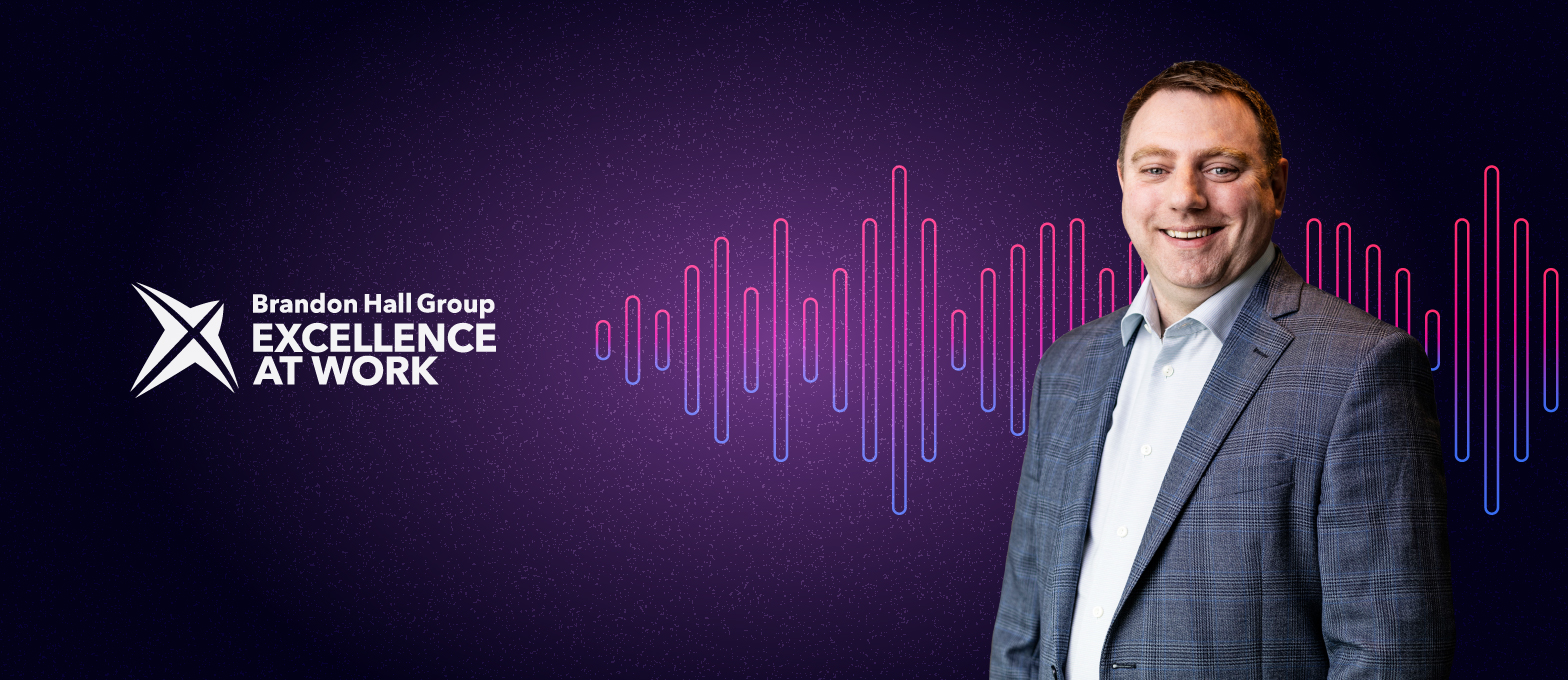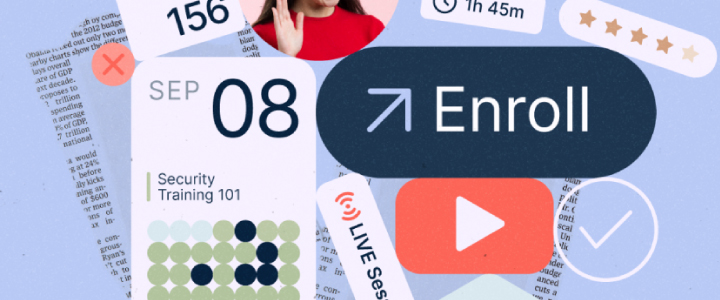
4 min reading time
The Future of Learning with LearnUpon and Brandon Hall Group
In a recent episode of Brandon Hall Group’s “Excellence at Work” podcast, LearnUpon co-founder and CEO, Brendan Noud joined Rachel Cooke, Brandon Hall Group’s Chief Operating Officer and Principal HCM Analyst to discuss the future of learning.
During the podcast, Brendan highlights some of the key trends that are shaping the future of learning including the shift to just-in-time learning, AI and the need for personalized learning experiences.
The shift toward just-in-time learning
“We’ve always thought about learning from the LMS perspective — in some ways just to get out of the way and make the learner experience as seamless and user-friendly as possible. Embedding learning into other apps is just the next iteration of that trend.“
– Brendan Noud, CEO and co-founder of LearnUpon.
To kick off the conversation, Rachel asks Brendan about what he sees as the “next phase of learning”. His response: just-in-time learning, the practice of providing learners with the information they need at the exact moment they need it.
Being a delivery engine to serve up the right content is a key focus for LearnUpon. This is especially true for embedded learning, an area of focus we see for customers and prospects. This is one we’re all excited about, and how the platform will adapt to support it.
AI’s role in learning
Moving swiftly on, the conversation turns to AI and how it is going to play a significant role in L&D, and make it much more efficient.
“AI will be there as support and not be intrusive or disruptive, but actually make people’s jobs easier as they won’t be spending lots of time looking for relevant content or information.”
– Brendan Noud, CEO and co-founder of LearnUpon.
As content creation has historically been the most time-consuming part of learning, the introduction of ChatGPT is a prime example on how AI will be used. AI is helping technology get smarter, and data is the driving force behind it. Not to be used as a separate piece of technology but rather built into other software to provide unique functionality.
Think about what learners do in their roles, like working through different apps and software – AI could be working in the background and understanding the impact of those conversations, and again, serving up relevant content at the right time.
The idea is that AI will make learning more efficient, both from an administrator-instructor perspective and from the learner’s perspective. As an industry, we are just at the beginning of the impact this can have.
Skill Development
When we think about career paths and getting the right skills for a job, we often need to go through very structured programs. These can be long, with lots of content and various assessments. There may even be some that are irrelevant or that you won’t need.
Using an LMS can help make the process of acquiring the necessary skills more efficient. Brendan also highlights the importance of focusing on relevant skills for employee job satisfaction and career progression. By leveraging the data and impact of training programs on job success, businesses can empower employees to feel more motivated and engaged. From a career perspective, it’s important for employees to feel that their job matters while building up their resume.
“We implement a results strategy with all our customers, which helps us to see the real impact from the business perspective of that investment in L&D or training programs, be they internal or external.”
– Brendan Noud, CEO and co-founder of LearnUpon.
Employee retention
At LearnUpon, we’re very proud of the fact that a lot of our early hires are still with us. Some have moved roles internally or their roles have evolved. That’s key if you’re trying to retain employees for the long term. People want to be challenged and they want to learn new things.
We see people stay in a role for three or four years, where they then may advance into more senior positions. But other times, we see requests where people are interested in other areas of the business and they’d like to build their skills and experience there. Creating opportunities for internal mobility is key.
On the other hand, the idea of staying with one company for an entire career is becoming less and less common by the day. People are eager to explore diverse fields and areas of expertise. When recruiting individuals, we find that many are searching for companies with a real vision and mission. They want to know how the company is going to have an impact and, that they can have an impact with that company, as part of the bigger picture. If opportunities for professional development and learning are not provided, retaining top talent will become a challenge.
Optimizing an LMS or choosing a new system
Larger enterprise companies may have multiple LMSs in use for different purposes. This can result in having three or four distinct LMSs, each tailored to specific use cases. Brendan recommends consolidating onto a single platform as a potential solution for companies to explore.
Businesses should leverage knowledge across different learning programs and teams. Many LearnUpon customers involve relevant stakeholders early on in the process, especially when considering a new system. Even if a company is not planning to implement different use cases or train multiple audiences, choosing a vendor with the ability to scale and future-proof the learning solution is vital.
Overall, the future of learning will be characterized by greater flexibility, personalization, and interactivity, as technology continues to transform the way we acquire knowledge and skills.
To watch the full podcast, click here.



